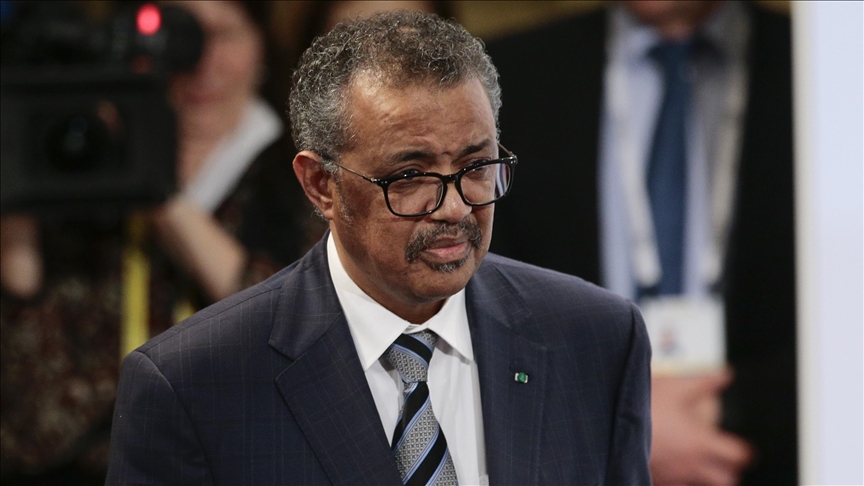COVID-19 stretched multilateralism: WHO chief

GENEVA
The head of the World Health Organization told the UN General Assembly that the coronavirus pandemic stretched the fabric of multilateralism.
“In the past 75 years, the UN has had many successes and many challenges. But none more than the COVID-19 pandemic which has strained the very fabric of multilateralism,” Tedros Ghebreyesus said via video link from Geneva.
He said the pandemic has demonstrated what the UN at its best can do and outlined a case for countries that have strong overall health systems best coping with the lethal virus.
The pandemic has shown what it is capable of at its best and worse, inspiring acts of compassion and self-sacrifice.
“It’s taking feats of science and innovation, and heartwarming demonstrations of solidarity, but also disturbing signs of self-interest, blame-shifting, and division,” according to Tedros, who aid many countries have succeeded in preventing or containing widespread transmission with proven public health measures.
Not a fluke
“This is not a fluke of geography or demography. These countries have proven that with science, solidarity, and sacrifice, this virus can be tamed this virus can be stopped.
“But when science is drowned out by conspiracy theories, where solidarity is undermined by division when sacrifice is substituted with self-interest, the virus thrives, the virus spreads,” he said. “The world needs the leadership of nations at the United Nations to end the pandemic and build the post pandemic world.”
He noted that more than 60 million cases of COVID-19 have been reported to the WHO and 1.5 million people have been killed.
“Although this is a global health crisis, it’s important to remember that not all countries have responded equally. And not all countries have been affected equally,” he said.
He said despite years of warnings, many countries were not ready for COVID-19.
“Many mistakenly assumed their strong health systems would protect them.”
“Many of the countries that have done best have recent experience of responding to outbreaks of such as SARS, MERS, H1N1 and other infectious diseases,” he said. “Now, all countries must develop that same muscle memory and invest in the measures that will predict prevalent control and mitigate the next crisis.”
“It’s also clear that the global system for preparedness needs attention. The International Health Regulations is a powerful legal tool, but countries must use it more effectively,” said Tedros.
The WHO chief said the pandemic underlined why universal health coverage is so important.
“In the face of the pandemic, many countries have offered free testing and treatment for the COVID-19 and have promised free vaccination for their populations,” he said.
They recognized the ability to pay should not be the difference between sickness and health, life and death.
“Should that also be true for a crisis by cancer, heart diseases, HIV, TB, or malaria?,” he said. “Shouldn’t it also be too for services like routine immunization, maternal care, and tobacco control which can prevent a crisis and the costs of dealing with it? universal health coverage is built on strong health systems?,” said Tedros.
The pandemic showed an urgent need for a globally agreed system for sharing pathogen materials and clinical samples to facilitate the rapid development of medical countermeasures, as global public goods, said Tedros.
*** This article has been archived for your research. The original version from Anadolu Agency can be found here ***


